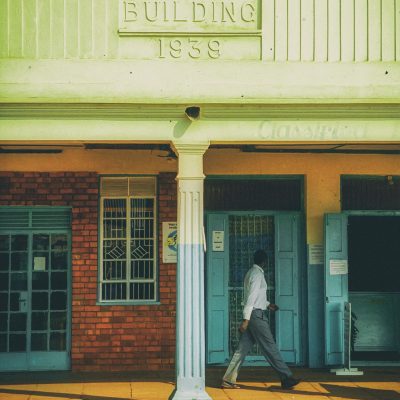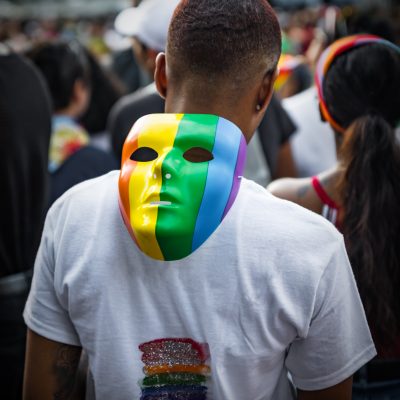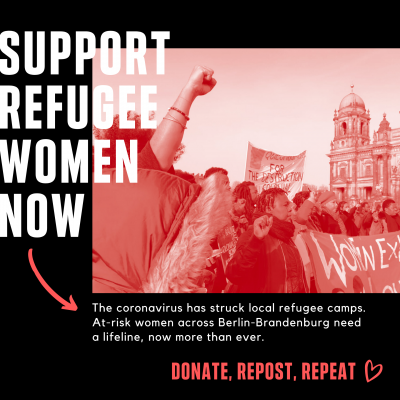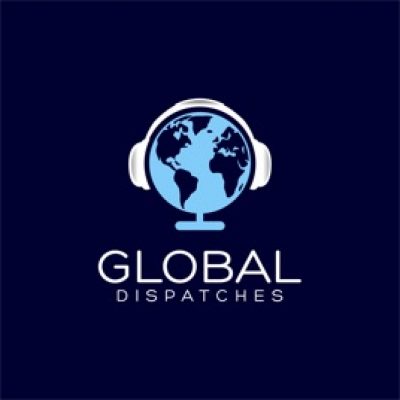Details
Article
Senior Fellow Tanja Dittfeld is a doctoral researcher, research assistant and lecturer at The University of Sydney.
While countries such as Denmark, Australia and Germany discuss which policies to adopt to buffer the impacts of COVID-19, Uganda, as an increasingly autocratic state (1,2), with a rudimentary ‘welfare’ model, simply does not have the setup, nor seemingly the will, to tackle the economic or social hardships propelled by social distancing, transport bans, and closure of businesses, especially for those at the margins.
Is COVID-19 an excuse for autocracy?
On April 12 2020, a tweet declared that Uganda’s President Museveni would extend the current COVID-19 measures including a complete ban on all private and public transport, closure of bars, hotels and all non-food markets, instituting a night-time curfew and most recently prohibiting outdoor exercise with an additional 21 days starting from April 14.
While the tweet was initially dismissed as fake news, the lockdown was extended with 21 days on the April 14 without any new policies or packages being put into place to cater for the economic, social and health implications of the extension.
As such, COVID-19 continues to develop from a public health crisis to a human rights crisis in Uganda. The use of COVID-19 for increased repressive action speaks to this development.
In Uganda, Human Rights Watch has documented security forces beating, shooting and arbitrarily detaining people across the country who are argued to be in breach of the government’s COVID-19 measures. The incident that has gained most traction in international media is the arrest of 23 young LGBTQ+ people at a shelter on the outskirts of Kampala on March 29 and detainment of 19 of them without access to a court, legal representation or medication at least until April 29.
“Uganda […] does not have the setup, nor seemingly the will, to tackle the economic or social hardships propelled by social distancing, transport bans, and closure of businesses, especially for those at the margins.”
When #StayHome is taxed
After declaring COVID-19 a global pandemic, the World Health Organisation (WHO) warned that Africa in particular should brace itself as COVID-19 could stretch already fragile health systems to their breaking point. The measures in Uganda seem to heed these warnings , but they also disregard the lived realities of ordinary Ugandans who cannot stay at home, do not have a home or need to work to survive.
“In Uganda, Human Rights Watch has documented security forces beating, shooting and arbitrarily detaining people across the country who are argued to be in breach of the government’s COVID-19 measures. The incident that has gained most traction in international media is the arrest of 23 LGBTQ+ young people at a shelter on the outskirts of Kampala…”
Public health experts recommend that companies encourage employees to work from home to prevent the COVID-19 from spreading, and the Ugandan government has tried to popularise this advice with the already popular hashtags #StayHome and #StaySafe. While this whimsical Social Media strategy might work for high-income earners, for low-income earners it simply does not. Employees in retail, restaurants, personal services, the gig economy, and informal sectors where stable wages are more precarious most commonly cannot perform their jobs remotely and do not have the financial means to stock up on food. Worst of all these workers rarely have easy access to health insurance or paid sick leave.
In Uganda, the technology and infrastructure needed to work from home is not attainable nor affordable for most people, especially after a new social media tax for more than 60 online platforms including WhatsApp, Facebook, Skype and other social media was introduced in 2018. The tax is an extension of the shutdown of all social media during the 2016 presidential election aimed at curbing political opposition and freedom of speech. This despite the African Commission having acknowledged the importance of freedom of expression in the digital space, and Uganda’s Constitution protecting the freedom of expression even in new forms of technology.
While the tax is problematic for digital activism, the decrease in social media usage also has economic repercussions for people involved in the sale of internet data and for people such as boda-boda (motorbike taxi) drivers dependent on social media apps for business. A recent report by Pollicy found that 74% of people who use social media for their business suffered reduced income following the tax implementation.
“Public health experts recommend that companies encourage employees to work from home to prevent the COVID-19 from spreading… [However,] in Uganda, the technology and infrastructure needed to work from home is not attainable nor affordable for most people…”
Implications of COVID-19 measures for already vulnerable groups
“With the transport ban imposed effective immediately, it not only compromises people’s current access to HIV treatment and healthcare services, but also prevented people from stocking up on their medications.”
Inequality is at the forefront of COVID-19. If not already marginalised before the crisis, then the COVID-19 measures are pushing minorities even further to the edge of economic and health inequity. All governments have an obligation to ensure that a public health crisis does not also become a human rights crisis because people are unable to access adequate medical care. Yet, the Ugandan government has not put alternatives in place for its transport ban that effectively prevent people from accessing testing, preventative care, and treatment for HIV, COVID-19 and other health services.
For approximately 1,4 million people living with HIV in Uganda, the inaccessibility and unaffordability of food may compromise their adherence to anti-retroviral treatment (ART) as taking the medicine on an empty stomach can cause great discomfort such as dizziness, weakness and nausea, which jeopardises their health and increases their vulnerability to COVID-19.
“If not already marginalised before the crisis, then the COVID-19 measures are pushing minorities even further to the edge of economic and health inequity.”
For sex workers, social distancing, quarantine and the closure of bars and hotels mean that female and male sex workers have lost the majority of their avenues for work and are therefore without income. Which may render them unable to afford food or shelter for themselves, their families and/or dependents, and this increases their risk of homelessness but also sexual exploitation by those who they may have to turn to for shelter and food.
The Ugandan government launched a food-distribution initiative for 1,5 million residents of the capital, Kampala, and nearby districts to the most vulnerable communities, to cope with corona-restrictions. The food aid initiative is not only geographically inadequate and already tainted by four officials in the Ugandan prime minister’s office having been arrested for alleged corruption over the purchasing of the food. It also undercuts the apprehension that some marginalised groups, especially LGBTQ+ people, may have in getting in touch with government officials.
With the transport ban imposed effective immediately, it not only compromises people’s current access to HIV treatment and healthcare services, but also prevented people from stocking up on their medications. This in effect means that people living with HIV are at risk of being without their medicine, which not only violates their right to treatment, renders them vulnerable to a deterioration in overall health but also increases their susceptibility and potential spread of COVID-19.
Particularly for sex workers, the sudden transport ban may also inhibit their access to general sexual and reproductive health services, which means that STIs/STDs may go untreated, that sex workers may get stuck with unwanted pregnancies, and those with wanted pregnancies may have their antenatal routines disrupted. For LGBTQ+ people, the economic impact of COVID-19 may mean that they must move back into homes from which they were either evicted or exposed to abuse due to their gender identity and/or sexual orientation.
Fighting back
“The most immediate and tangible way to assist civil society organisations in their fight is to support them directly through crowdsourced fundraising or individual donations.“
In a context where COVID-19 is used as a pretext to further oppress minorities, restrict civil society space and increase police powers, it is up to civil society to fight back. Local civil society organisations are critical, not only in responding to these issues within the communities but also in supporting the efforts to stem the spread of COVID-19 and ensure that those with COVID-19 – or those living in isolation or under quarantine – have access to food, shelter, protection, care and health services.
Recently, civil society organisations working within the area of HIV wrote a joint open letter to President Museveni commending the resolute COVID-19 response but also pinpointing the implications of the COVID-19 measures, particularly the transport ban, on access to healthcare services for women and children, and the importance of nutritional support for the adherence, treatment and prevention of HIV.
Another example is the joint statement written by different human rights activists including Advocats Sans Frontieres, Chapter Four, Legal Aid Service Providers Network, Muslim Centre for Justice and Law and National Coalition of Human Rights Defenders. The statement urges the government to release some prisoners and provide improvement of medical services in prisons across the country to prevent and contain the spread of COVID-19 to staff and inmates, and furthermore to prevent riots that could arise as a result of low staffing levels and the congestion within detention facilities.
The fight for the needs of marginalised and vulnerable groups is particularly hard during COVID-19 though. Civil society organisations and human rights activists are themselves highly restricted by COVID-19 lockdown measures. On top of this, these vital organisations are currently hit with unexpected financial drains and with departure of vital partners (expats) from INGOs, embassies, and bi/multilateral who pretty much deserted Uganda at the onset of the COVID-19 crisis.
The most immediate and tangible way to assist civil society organisations in their fight is to support them directly through crowdsourced fundraising or individual donations. Some of the organisations working with or for people living with HIV, sex workers and LGBTQ+ people have already been mentioned explicitly above. Other key organisations include, but are certainly not limited to, Sexual Minorities Uganda (SMUG) – a non-governmental advocacy organisation that monitors and aids the efforts of more than 20 LGBTQ+ organisations and networks across Uganda – and Human Rights Awareness and Promotion Forum (HRAPF) – a non-governmental human rights advocacy organisation whose mission is to promote respect and protection of human rights of marginalised persons.
“Local civil society organisations are critical, not only in responding to these issues within the communities but also in supporting the efforts to stem the spread of COVID-19 the virus and ensure that those with COVID-19 have access to food, shelter protection, care and health services.”
References
- See e.g. Tripp, Aili. (2004). The Changing Face of Authoritarianism in Africa: The Case of Uganda. Africa Today. 50. 3-26. 10.1353/at.2004.0035.
- See e.g. Kantel, A. J. (2019). Fishing for Power: Incursions of the Ugandan Authoritarian State. Annals of the American Association of Geographers 109(2): 443-455.







